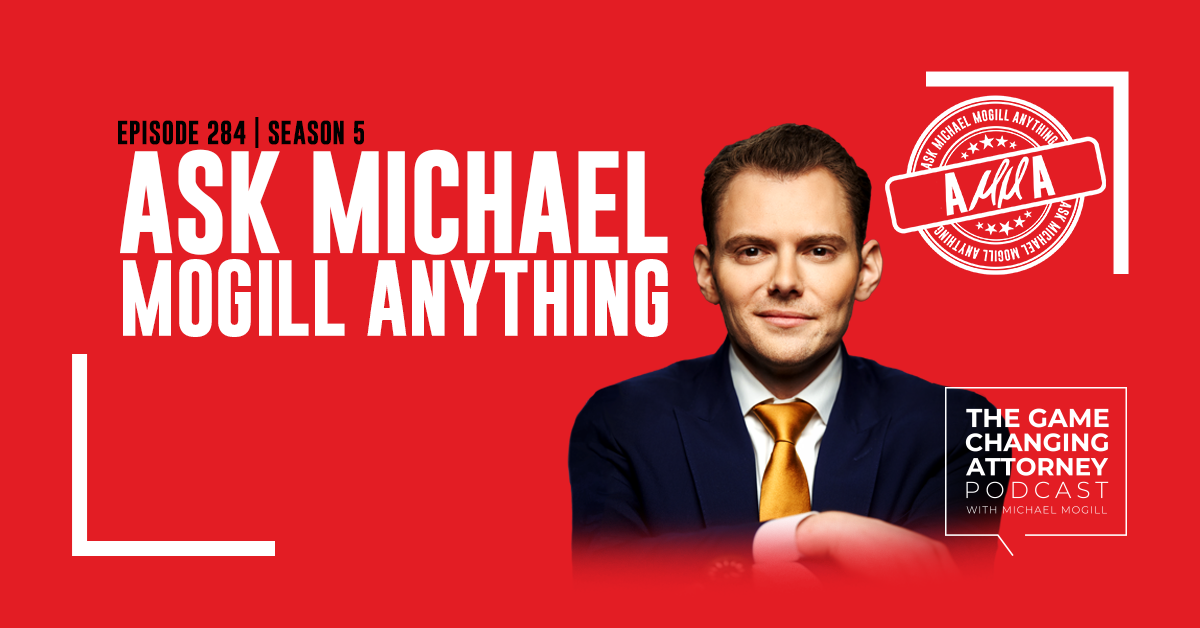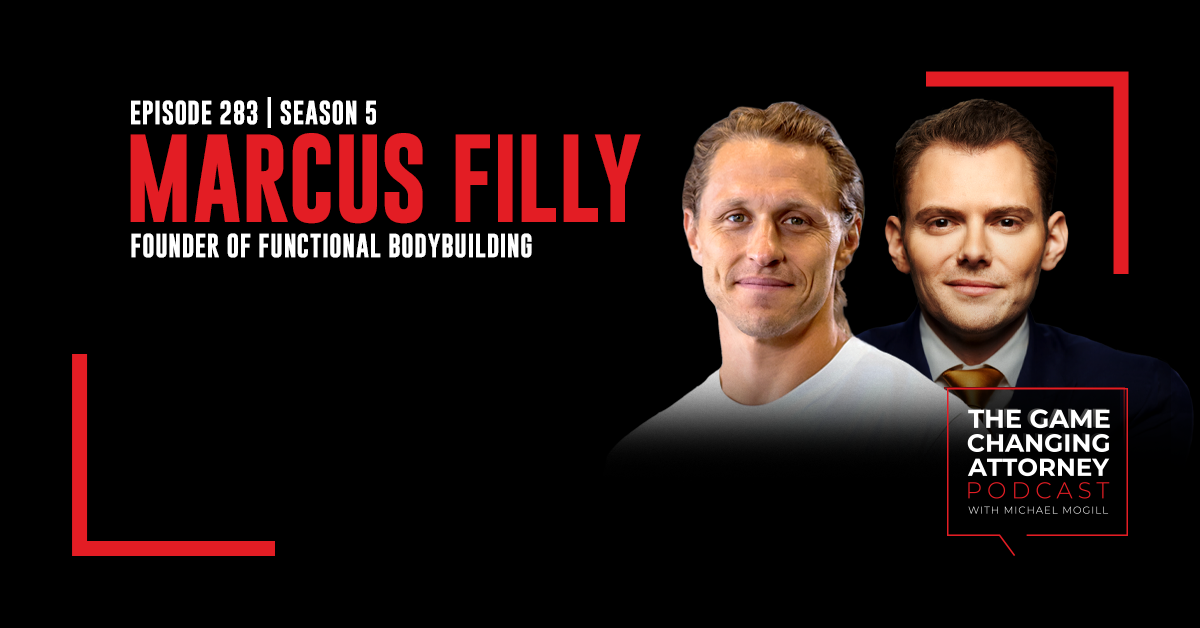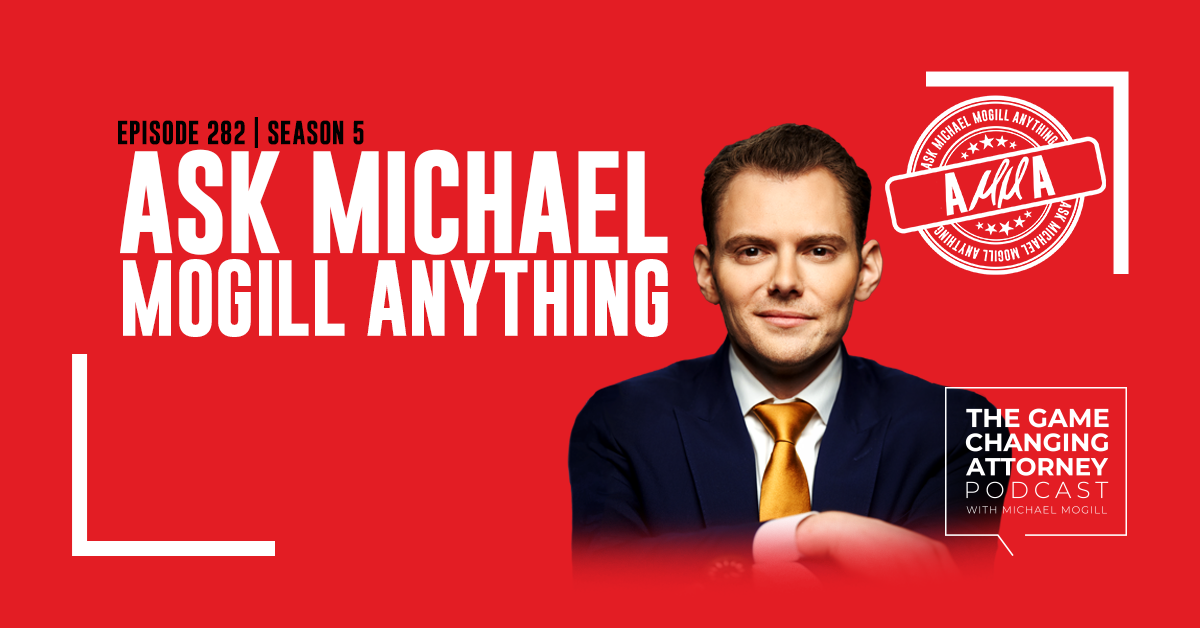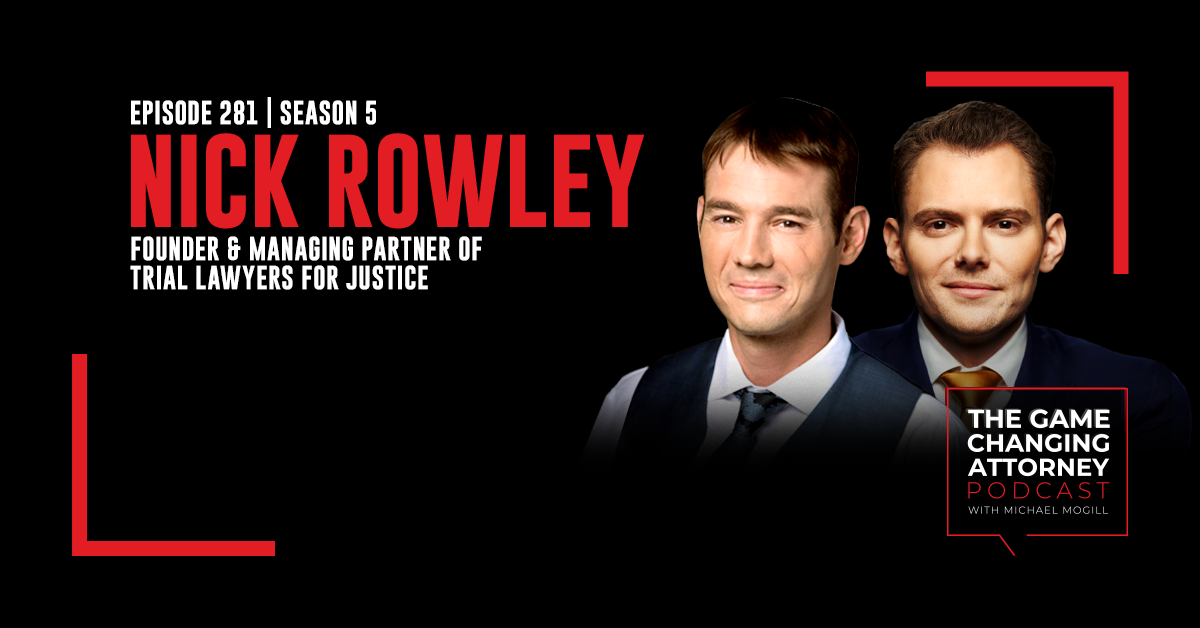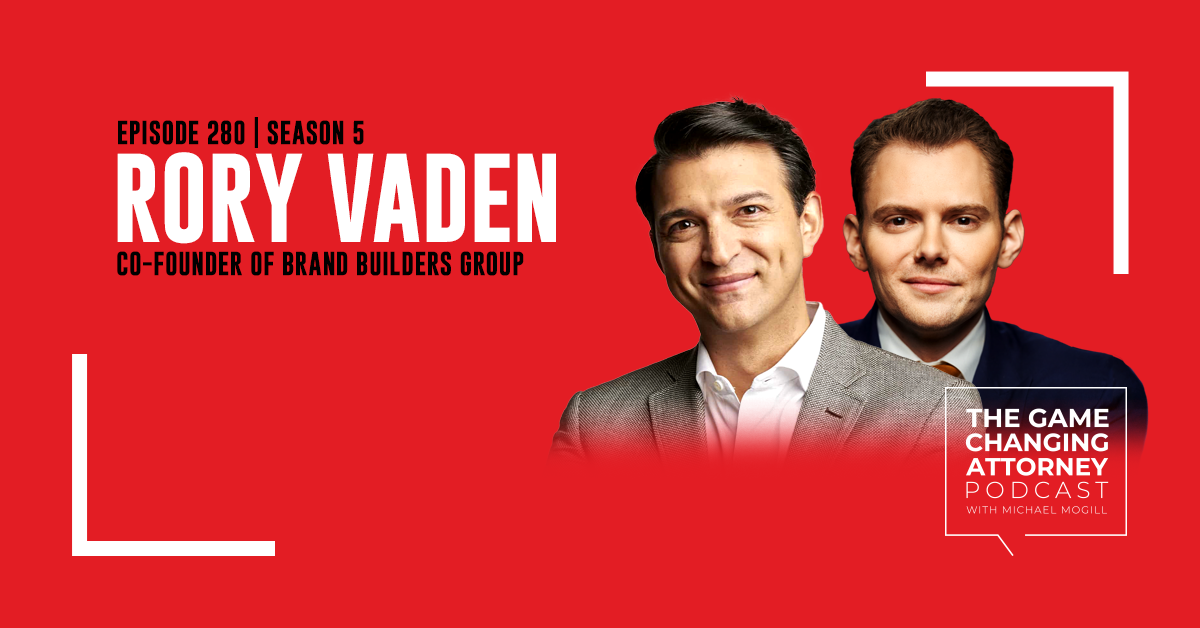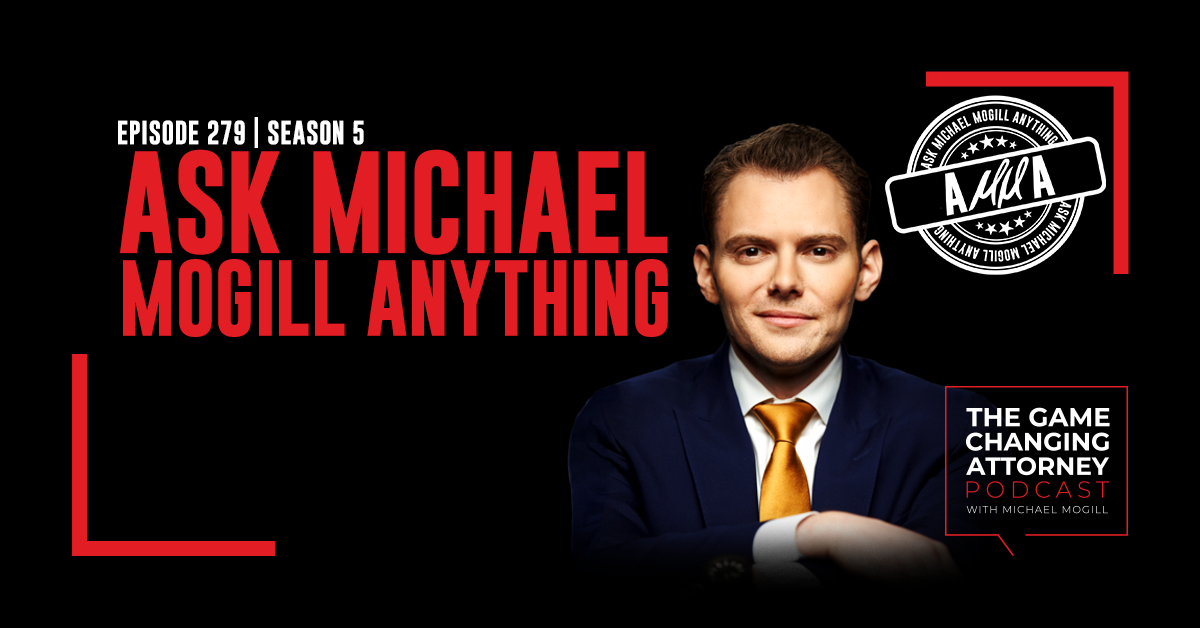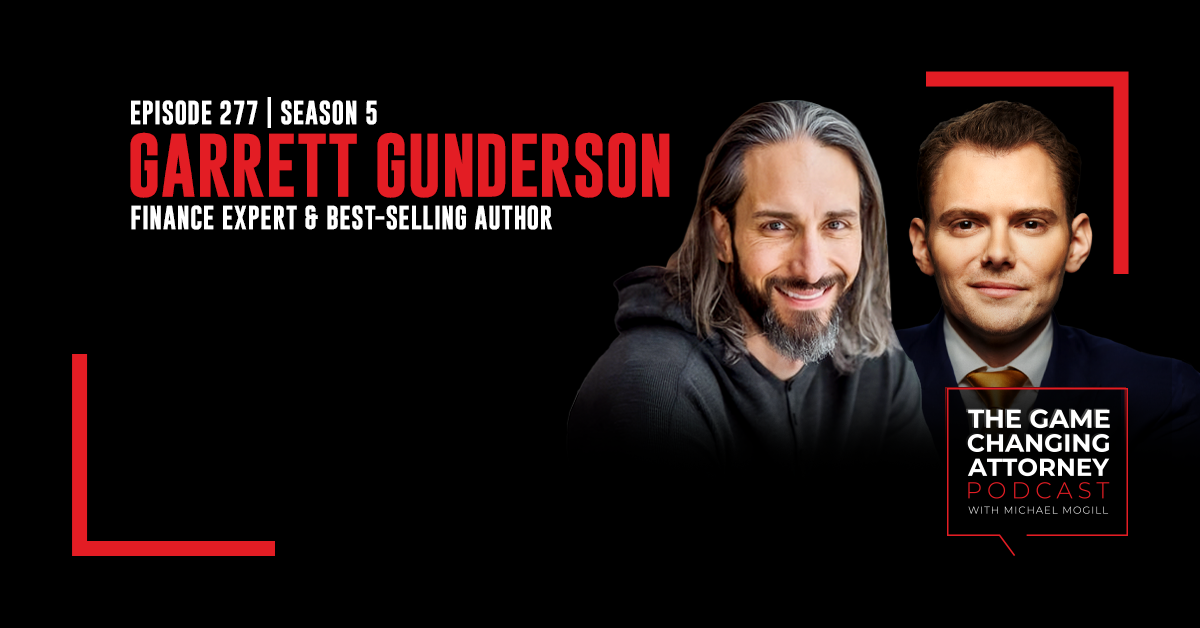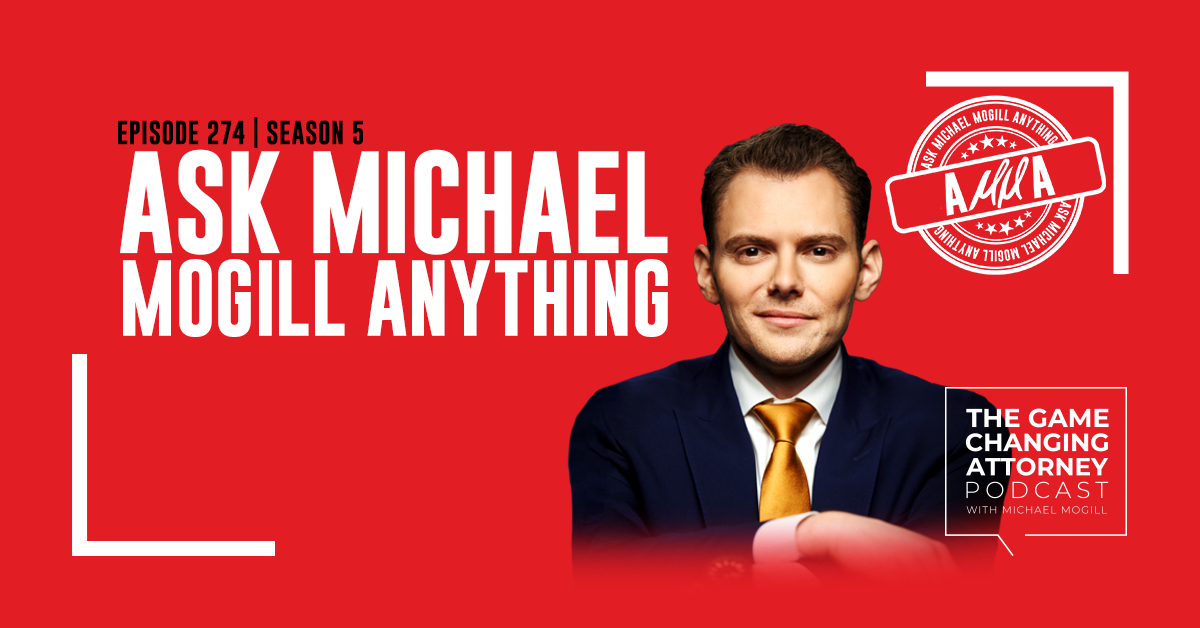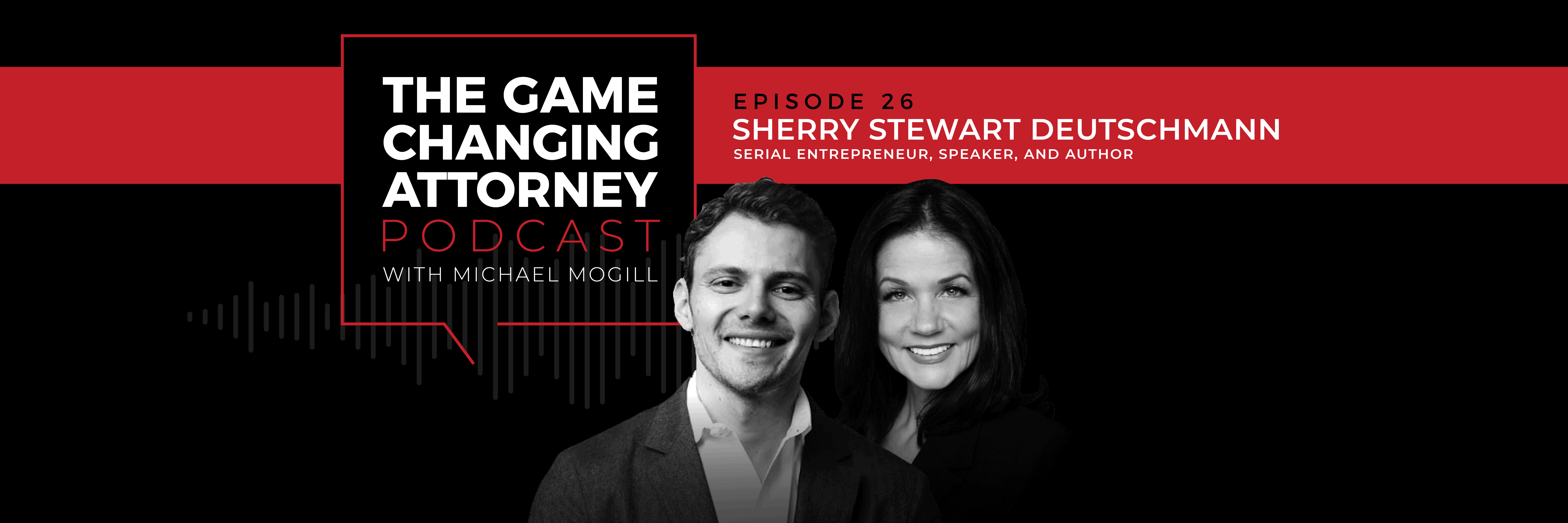
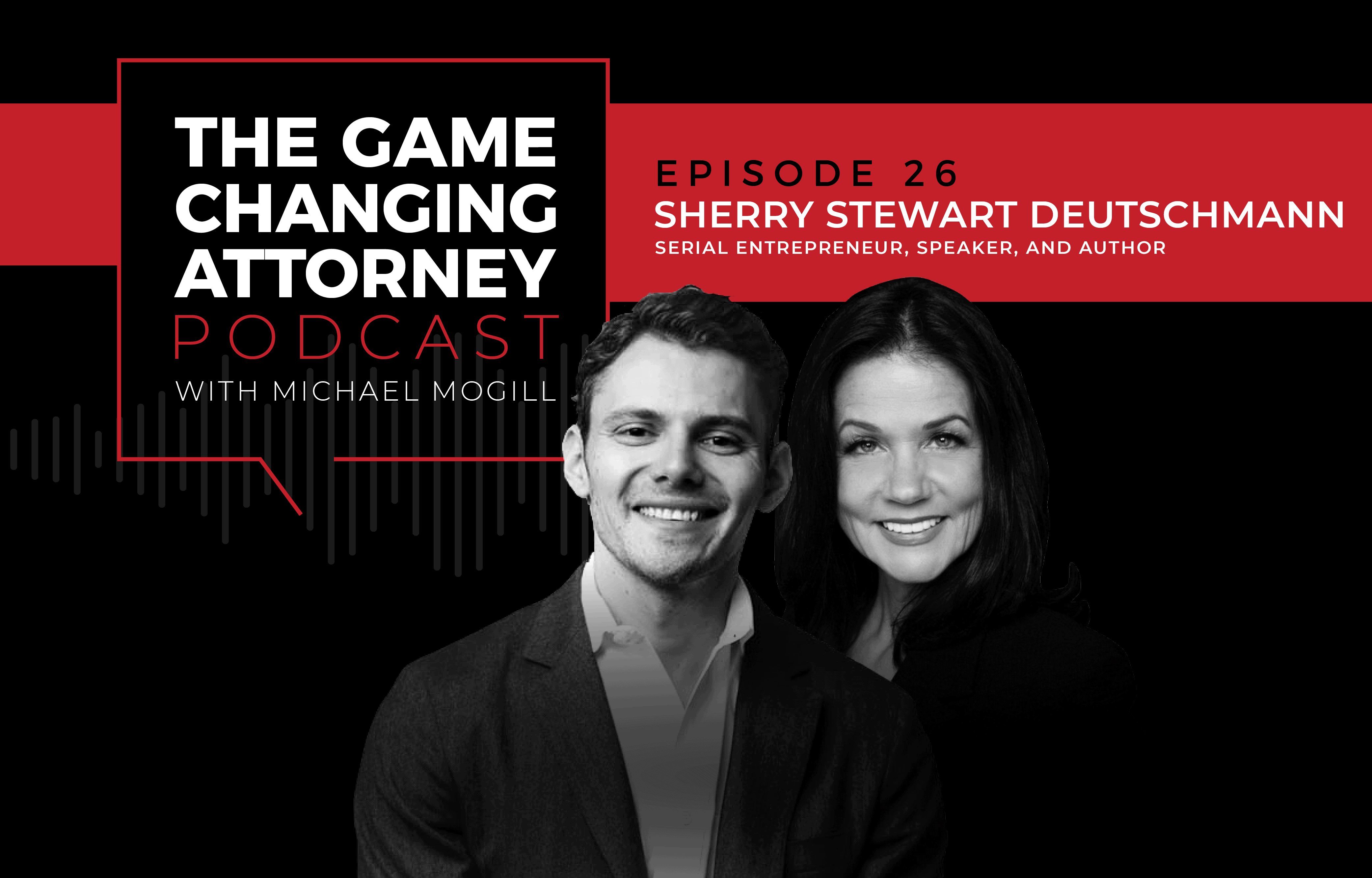
EPISODE 26 — Sherry Stewart Deutschmann — Maximizing Profits by Investing In Your People
Sherry Stewart Deutschmann is a serial entrepreneur, speaker, and author of Lunch With Lucy: Maximize Your Profits By Investing In Your People. From humble beginnings, Sherry built a 40 million dollar company that was included in the Inc. 5000 List of Fasting Growing Private Companies for 10 years straight.
On this episode of The Game Changing Attorney Podcast, she shares her incredible story with us, including her revolutionary methods for employee engagement and exponential growth. Sherry dives deep into questions such as:
- Why should CEOs let their employees look through the company finances?
- How did Sherry Stewart Deutschmann build one of the world’s fastest-growing companies?
- Why should every leader have lunch with their employees and really listen?
- Can you really profit by putting your employees before your clients?
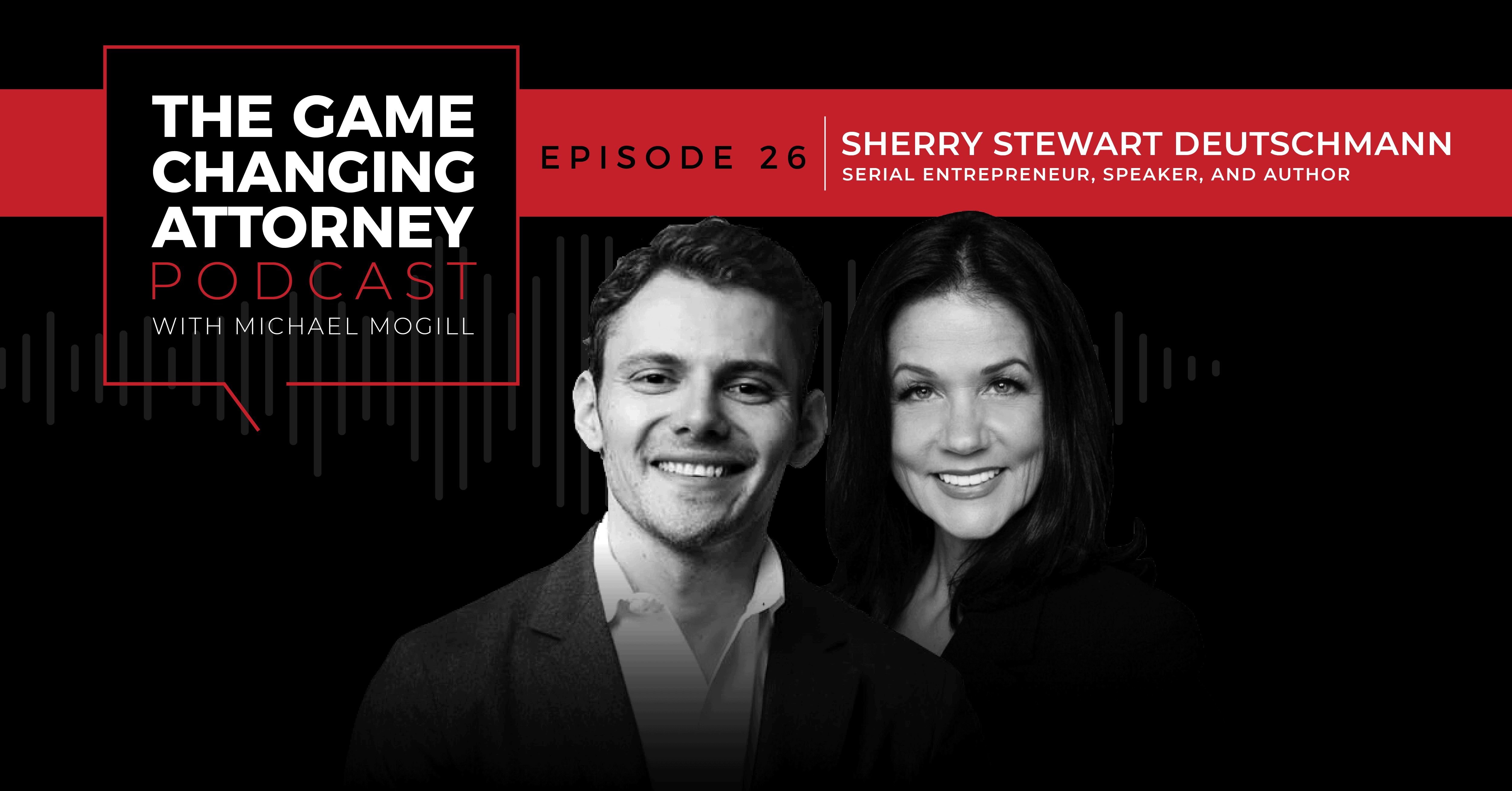
Listen & Subscribe
Show Notes:
2:03 – An unlikely beginning. “There’s nothing in my origin story to indicate that I would be where I am right now. I was born into a family of Jehovah’s Witnesses in the mountains of North Carolina — very sheltered in numerous ways. I only went to high school and got married at 18 because that’s what Jehovah’s Witnesses often do. I had no formal training of any kind, so the only work that I could do in those early years was menial tasks. I cleaned houses for the wealthy people who had homes in my mountain resort town, and even had a route where my sister and I cleaned gas station bathrooms — definitely not a very glamorous business. I divorced my husband at a very early age and was a single mom with no education, no assets, no money, no nothing, and moved to Nashville, Tennessee to pursue a career as a singer. Then, I went to a Lincoln Mercury dealership here to get my first job selling cars. The general manager came out and said, ‘Your timing is really good. We need some saleswomen, and we’ve never had one. This is very tough business. Can you handle rejection?’ And I said, ‘Yes sir, I can.’ And he said, ‘How do I know you can handle rejection?’ I said, ‘Because I was raised as a Jehovah’s Witness knocking on doors since I was in third grade.’”
6:33 – A lesson in empathy. “Those early years, you know, being a single mom in a strange town really set me up to be a lot more empathetic leader later when I became a leader. I cared a lot more about the personal situation of the employees. That’s largely because oftentimes I would be sitting there working for this company and unable to concentrate on work because I was literally counting pennies to buy gas to go in my tank so that I could get home to a hot apartment — I didn’t have AC. So, it was pretty tough times in the early years.”
8:45 – Investing in employees. “I’ve often told people that my company wasn’t successful in spite of all the crazy things that I did to take care of my employees. It was only successful because of those things. I try to get entrepreneurs to think about taking care of their employees as an investment, not an expense. It’s an investment that will actually absolutely produce the greatest ROI of any investment you’ll make on your business.”
12:20 – A twist on profit share. “We did the profit share monthly, and this is the kicker. This is the big difference: It was split evenly. So, the CFO got exactly the same dollar amount that our custodian got. The director of IT running an IT team of 22 people got exactly the same thing our receptionist got. That told everybody that they were just as important as every other person in the company, and no more important than anybody else in the company. It made them have more empathy and respect for one another and the contribution that the others were making. And it really informed their behavioral changes so that they could drive that bottom line up so that every month the profit share checks would get bigger and bigger — and they did.”
18:33 – Creating an aligned culture of generosity. “I had a new employee once who came in as the head of the finance department, and after about six weeks with the company he pulled me aside to tell me that he really appreciated my generosity, but that I didn’t really understand how profit share programs were supposed to work. So I said, ‘Well, explain it to me then.’ And he did. And so I said, ‘Oh, I get it. What you mean is that, because your salary is five times higher than Frank, our receptionist, that you’re part of the profit should be five times higher than Frank the receptionist.’ He said, ‘Yes, exactly,’ and I had to let him go shortly thereafter because it was obvious that he didn’t really buy into our culture and he really did think that he was better than other employees — and he wasn’t.”
20:42 – Financial transparency. “We all want our employees to help us make the company more profitable, but unless they know how the company makes money, they’re not equipped to make better decisions to make it make more money. I wanted them to understand what money we were spending on their behalf and what things really cost, so we did share the financials with them every month. I think that was really important for them to see how much we were paying for insurance on their behalf. It was especially valuable to my sales team. They weren’t happy with just seeing the P&L. They wanted to dive into the penny on the cost of goods, and I let them. In fact, I just invited them into my office and said, ‘Pull up a chair. Here’s NetSuite (our accounting system). Have at it.’ I let them print off anything they wanted to print, so they were better informed, and it made them not bring me crap accounts, because they knew where our profits were being made. So I don’t think anything bad can come from sharing the financials with employees.”
24:04 – How do you define success? “Success is being able to go to bed at night with a clear conscience knowing that you’ve done the best you can do for people around you. And if you’re talking about a financial basis or anything like that, I remember a couple of times people have asked me, ‘When will you know that you’ve made it?’ And my response there is when you stop describing me as a female business owner and just as a successful entrepreneur.”
24:58 – Lunch with Lucy. “Lucy is my alter ego. I created this program to just listen to employees, and I didn’t think it sounded that inviting to say have lunch with the CEO, so I just created this alter ego, Lucy, and on Wednesdays, I reserved my lunch hour for an employee. They always chose the restaurant, and they chose whoever else might be with us at the table. Then we just talked about what they wanted to talk about. It’s just an opportunity for me to learn about them. And so in general, I learned about unique challenges they faced before they even came into work every morning. I learned about their hopes and dreams, and what they wanted to be doing with their life that they couldn’t do yet because they were just doing all they could do to keep the lights on. I learned about things that were going on in my company that I wouldn’t have known about otherwise, and I was able to respond and make the company better because of that. I also learned what they thought of me as a leader. I mean, they challenged me and sometimes challenged my decisions. And I listened. And they knew that I listened, because they saw me take action based on what I heard.”
29:06 – What separates good leaders from great leaders? “Empathy. Absolutely, the ability to put yourself in the shoes of the people who work for you or your clients to be able to see the world through their lens, through their circumstances. That will help you make better decisions for the employees and for the customers. I think empathy is the most undervalued trait in leadership these days. But after empathy, I think authenticity — just being real with people and removing all of the masks and what people think of us, and letting them know who we really are and getting to see who they really are.”
29:59 – Practicing authenticity in her own life. “I had a mentor once who advised me to stop telling people that I didn’t have a college education. She said they don’t need to know that, and I want you to quit doing it. I tried that for a while, and I felt that by telling other entrepreneurs or other wannabe entrepreneurs, ‘Don’t let a lack of education hold you back. Look at what I’ve done without it,’ was providing a lot more value to the world. It broke down barriers before they could even start.”
31:41 – Improving employee engagement. “Gallup does a study on employee engagement, and right now they’re saying 64 percent of our employees are disengaged. Do you know why they’re disengaged? Because they don’t believe they matter — and in most cases they don’t matter. So, when you let employees know that they do matter, you care, and you want to hear what they have to say and you want to act on what they’ve told you, then they’re going to get in the game. They’re going to help you build a much stronger company. There’s nothing to fear. You’re only going to lose out if you don’t try this approach.”
34:31 – The hard truth about company culture. “I sold the company to private equity in 2016. I was very naive. I didn’t really understand that private equity is not really interested in building a great company. They’re interested in creating a great return on the investment for their investors. That’s it. I told the employees on a Monday, and the following Monday was my last day with them. The first day that I was not around, they did away with the profit share. Here we are four years later, and I think only 11 or 12 of those original employees are still with them. The majority left right after that because the culture changed so dramatically. So here we had highly trained, highly incentivized, highly engaged employees who left because suddenly it was just like every other company where you’re just a cog in the wheel and not really seen as a human being who contributed to that success of the company.”
39:15 – What does being a game changer mean to you? “It means changing the way business has been done — business that benefits mostly white men, and business that keeps the wealth at the top 1 percent. It means changing the game so that other people can actually play — and have a chance to benefit.”
EPISODE RESOURCES
Jehovah’s Witnesses
Volkswagen Rabbit
Mercury Lynx
Nuts! by Kevin Freiberg
Scripps Health
Crossfit
Lunch with Lucy by Sherry Stewart Deutschmann
Gallup Employee Engagement Study
BrainTrust
Entrepreneurs Organization (EO)
Connect with Michael
- Text directly at 404-531-7691
